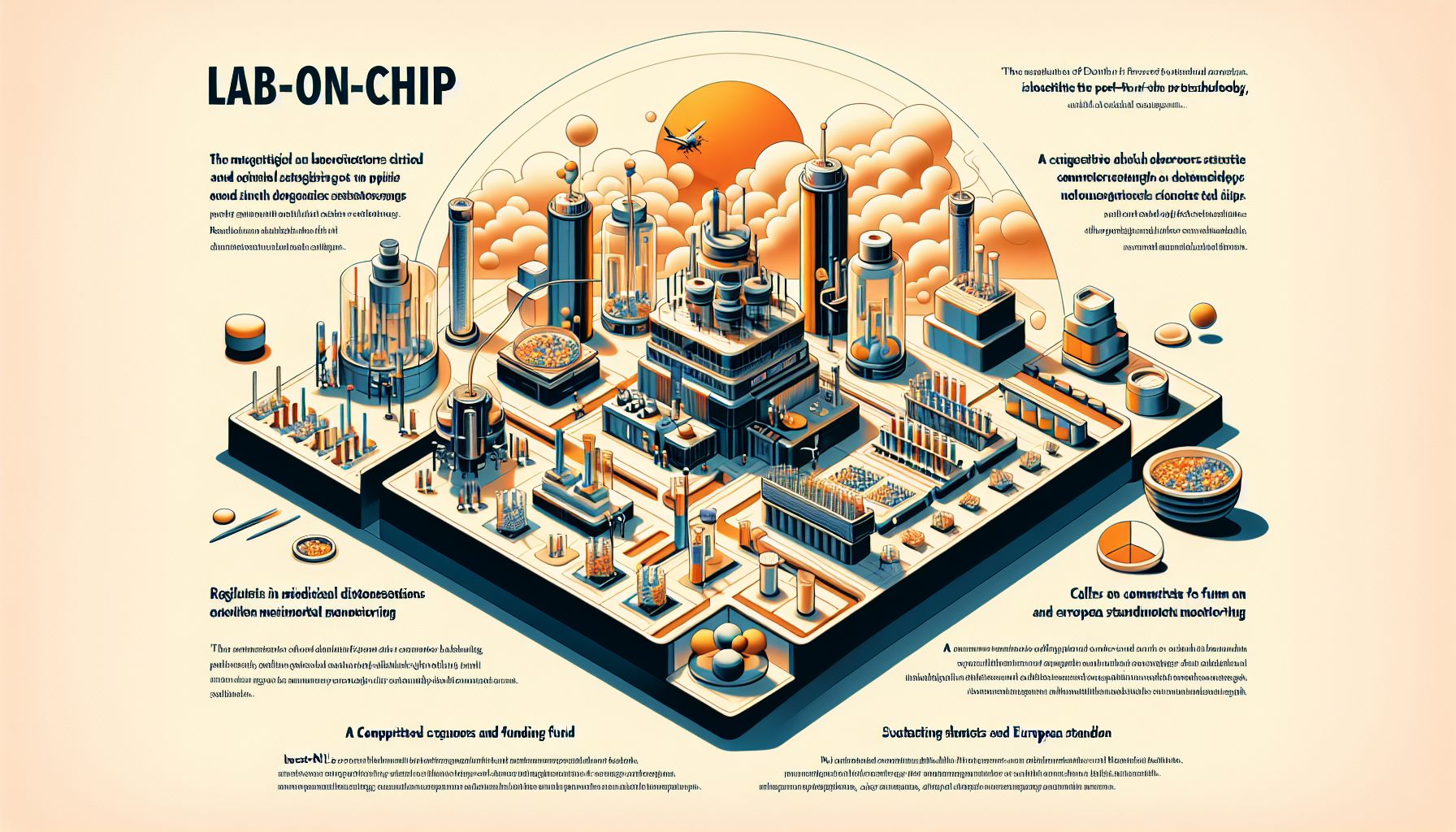Dutch Lab-on-Chip Innovation Faces Critical Funding Gap Despite Global Leadership Potential

Netherlands, Monday, 18 November 2024.
The Netherlands stands poised to dominate the lucrative lab-on-chip technology sector, valued at $92.43 billion by 2032. Despite strong academic hubs in Enschede, Leiden, and Wageningen, Dutch startups face a critical financing gap. Invest-NL’s report highlights how this emerging technology, which miniaturizes entire laboratories onto tiny chips, could revolutionize medical diagnostics and environmental monitoring. However, regulatory hurdles and funding challenges currently impede Dutch companies from fully capitalizing on this opportunity, prompting calls for a dedicated MedTech fund and European standardization to maintain competitive edge against U.S. dominance in advanced technologies.
Understanding Lab-on-Chip Technology
Lab-on-chip (LoC) technology is a groundbreaking innovation that integrates complete laboratory functions on a single chip. This miniaturization enables efficient chemical and biological analyses, such as DNA testing and medical diagnostics, by utilizing microfluidics. Microfluidic technology facilitates the manipulation of tiny liquid volumes through microchannels, allowing for real-time analysis and precise operations like mixing and separation[1]. The versatility of LoC technology finds applications in various fields, including continuous bacterial analysis, blood testing, glucose monitoring, and environmental assessments, making it particularly beneficial for preventive medicine and use in developing countries[1].
The Dutch Edge in Lab-on-Chip Technology
The Netherlands is well-positioned to become a global leader in LoC technology due to its strong academic and research infrastructure. Cities like Enschede, Leiden, and Wageningen host reputable academic hubs that foster innovation in bionanotechnology, organ-on-chip, and biosensors[1]. Additionally, the country’s vibrant startup culture, supported by Invest-NL, a private company funded by the Ministry of Finance, provides a conducive environment for pioneering advancements in this field[2]. Despite this potential, many Dutch companies encounter significant challenges in securing the necessary funding to transition from laboratory research to market-ready products[2].
Challenges and the Path Forward
Invest-NL’s report identifies a critical funding gap and regulatory obstacles as significant barriers to scaling LoC innovations. The organization advocates for a MedTech fund to support startups and shared facilities to reduce costs and enhance innovation[1]. Moreover, there is a call for European standardization of certification requirements to facilitate the market introduction of these technologies[1]. The need for a national strategy and targeted investment is emphasized by Gert-Jan Vaessen, fund manager of the Invest-NL Deep Tech Fund, highlighting the importance of aligning innovations with current market needs and regulatory landscapes[2].
Global Market Dynamics and Opportunities
The global microfluidics market, which heavily relies on LoC technologies, is projected to reach USD 92.43 billion by 2032, driven by advancements in diagnostics and personalized medicine[3]. The technology’s integration with AI allows pharmaceutical companies to significantly reduce drug discovery costs, enhancing its appeal in the medical field[3]. However, the Netherlands faces stiff competition from the United States, which continues to lead in technological advancements due to higher investments in research and development[2]. To bridge this gap, experts recommend increasing R&D spending and fostering collaborations to boost the Netherlands’ competitive edge in the global arena.

